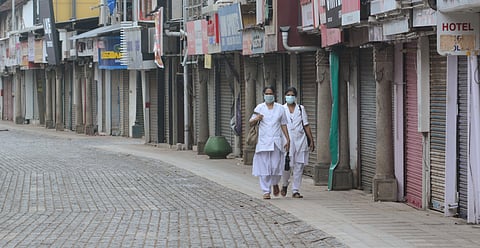

KOZHIKODE: A 12-year-old boy died on Tuesday in Kozhikode of amoebic meningoencephalitis, a rare and fatal disease that causes inflammation of the brain.
The boy was admitted to Baby Memorial Hospital on Saturday with symptoms that included headache, vomiting and unconsciousness. His relatives revealed that the boy had gone swimming in the pool at his cousin's home in Marikunnu last week.
"We suspected amoebic meningitis because of the rapid disease progression and history of swimming. Later the Brain Fluid Examination of the spinal cord confirmed the pathogenic amoeba. Since there is no specific protocol for treatment, we treated the patient in the pediatric intensive care unit with ventilator support. Unfortunately, we couldn't save the boy," said Dr Abdul Rauf, pediatric ICU specialist, Baby Memorial Hospital.
The fatal disease is caused by an amoeba called Naegleria fowleri, found in non-chlorinated freshwater ponds, lakes and wells. While taking bath in such water bodies is not harmful, but diving and prolonged swimming are infectious.
"The disease spreads when contaminated water enters the body through the nose. Once the amoeba enters the nose, it travels to the brain where it causes Amoebic Meningitis, which is usually fatal with a mortality rate that is around 95%," a doctor mentioned.
Less than 10 patients worldwide have reportedly survived the disease. The disease cannot be contracted through person-to-person contact.
In India, only 15 amoebic meningoencephalitis cases have been reported till date.
Ahead of the rainy season, the disease could be eliminated by disinfecting the ponds, lakes and wells with bleaching powder.